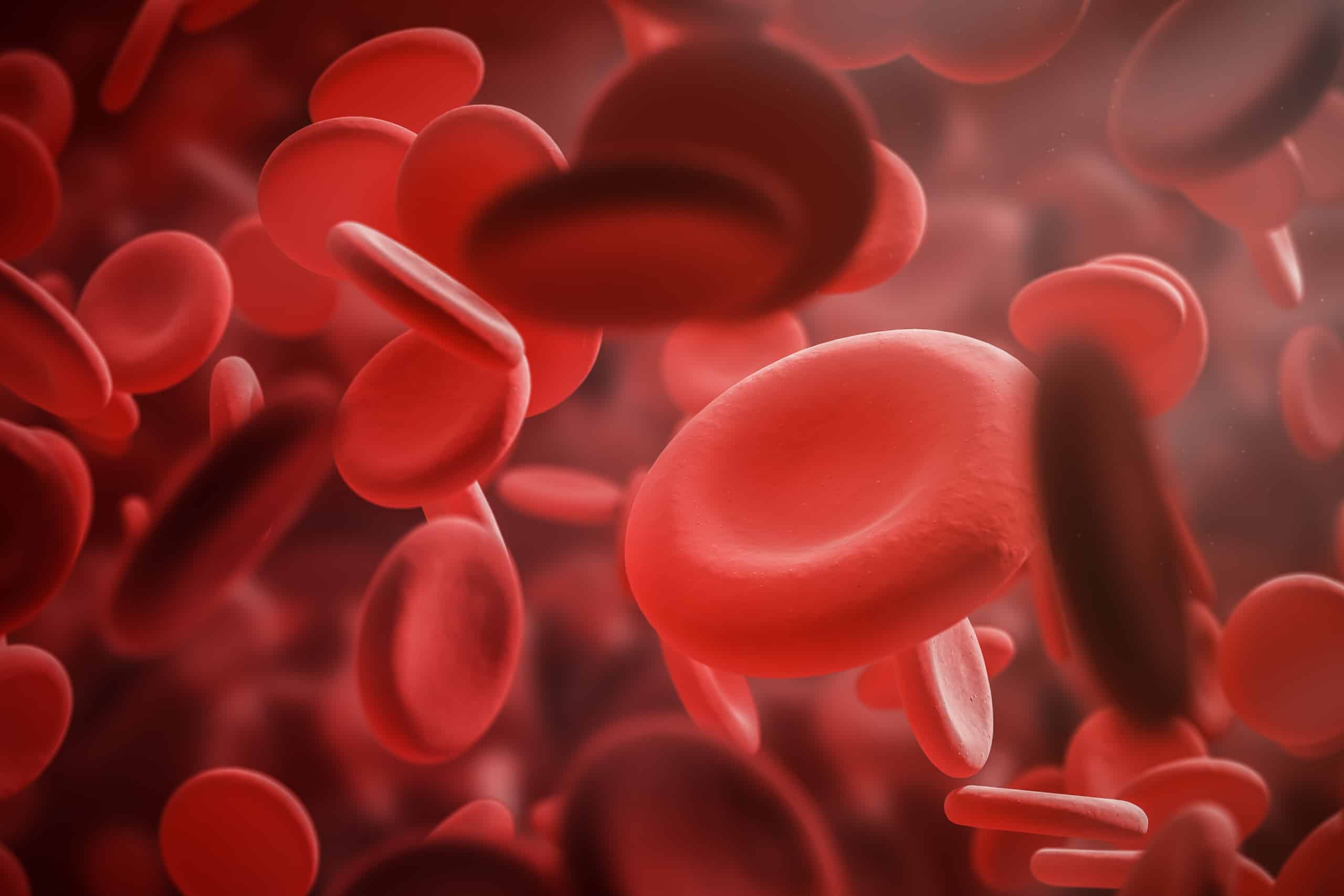“Why do I feel so bad after B12 injections?”
Can this really happen? Can B12 injections make you feel worse? Dr. Joseph Chandy estimates that 1 in 10 people experience this phenomenon. Just when you anticipate relief from your symptoms, the unexpected happens, and you actually feel worse.
How is this even possible?

Feeling Worse After B12 Injections
Usually, this phenomenon occurs within the first few weeks of starting with the B12 shots. It could manifest as worsening B12 deficiency symptoms like skin rashes, tingling sensations, burning pain, tremors, heart palpitations, joint pain, and more.
There could be a few causes:
Temporary Adaptation
Dr. Chandy thinks the phenomenon occurs because “the B12 allows the body to put itself right, and if you have had things wrong for a long time, then there’s a lot to put right in a small period of time.” While this idea is somewhat simplified, it’s intriguing
His hypothesis suggests that the sudden influx of B12 can kickstart repair processes, and if there has been long-standing damage, the rapid onset of these processes might overwhelm the system, causing a temporary worsening of symptoms.
It’s not uncommon in medicine to encounter situations where a treatment, especially one addressing a longstanding deficiency, might initially seem to exacerbate symptoms. One example is the Jarisch-Herxheimer reaction, which may occur in those treated for syphilis or Lyme disease. As the causative bacteria die off due to antibiotics, inflammatory agents are released and temporarily worsen symptoms before improvement is noted.
If Dr. Chandy’s hypothesis is accurate, the initial worsening might be a sign that the body is starting to heal or correct imbalances that have been present for a long time.
It could be, for example, an adapting nerve system.
Vitamin B12 is crucial for maintaining the myelin sheath around nerve axons. A B12 deficiency can cause demyelination, leading to neuropathy with neurological signs like numbness, pins and needles, and muscle weakness, especially in the feet and hands.
Members of the Pernicious Anaemia Society forum have proposed:
Many people on this forum have said that B12 injections made their symptoms worse. Neuropathy became exacerbated. To understand why this happens, we have to go to the synaptic cleft, or the connection between neurons. When a neuron is damaged due to B12, B1, or B6 vitamin deficiencies, the neuron no longer fires a signal. As a result, you may feel numbness in the feet or hands. The neurons in the affected network compensate for this weak or absent signals by increasing the number of neuro-transmitter receptors. With more receptors, neurons attempt to restore the signals to normal. When you start B12 (or B-complex) injections, the vitamins start to heal and “awaken” the sluggish or dormant neurons. But with the extra receptors in the neuron connections (synaptic cleft), over-firing occurs. It is necessary to wait for the neurons to down regulate the excess of receptors. In this case, the B12 shots have started to heal the damaged neurons myelin sheath, but the neural network in which the healed neuron is in, is in a super sensitive state (with extra receptors), so the patient may feel pain or other unpleasant sensations.
While this explanation touches on some interesting concepts, there are several points that need clarification and might be oversimplified or speculative:
Let’s start with neuronal compensation. It is true that in certain neurological conditions, the brain may undergo plastic changes and compensate for deficits in signal transmission. This might include increasing the number of neurotransmitter receptors. However, this is a complex process and isn’t exclusive to B12 deficiency neuropathy.
The metaphor of “awakening sluggish or dormant neurons” can be misleading. B12 helps in repairing the myelin sheath of damaged neurons, improving nerve signal transmission. This doesn’t mean that the neurons were “asleep” and are now “awakened”.
The idea of over-firing due to extra receptors is speculative. While it’s true that receptor density can change due to various factors, it’s an oversimplification to suggest that this change is the direct cause of increased pain or sensations in B12-treated individuals. While the nervous system does undergo regulatory processes, it’s oversimplifying to suggest patients simply need to “wait for downregulation” to experience relief.
So, while the explanation touches on real aspects of neuropathy and B12 deficiency, it might oversimplify or misrepresent some of the complex interactions in the nervous system. We simply don’t know enough to make such bold statements.
However, such an explanation is in the nature of what Dr. Chandy suggested. We don’t exclude the possibility of a similar adaptation taking place behind the scenes, bringing out worse symptoms for a temporary period. Time will tell.
Coexisting Illnesses
B12 deficiency is often paired to other deficiencies or illnesses. Vitamin D deficiency is common, in part because people who are sick tend to stay at home and not get enough sunshine. Hormonal deficiencies and mineral imbalances are common as well.
In other words, the “1 in 10 people” getting worse after starting with the B12 shots may just be the result of one of the other coexisting illnesses getting worse.
It may have nothing to do with the B12 itself.
Low Potassium
The conversion of anemia to normal production of red blood cells could temporarily lead to low potassium levels and high platelet count. This temporary effect might be another cause for what’s causing the situation to get worse before it gets better.
The B12 Deficiency Itself
People fail to realize that when patients suffer from B12 deficiency, very often the disease is only diagnosed at its end stage. The patient is already going downhill, which is why the B12 shots are prescribed. Aren’t the shots supposed to help?
Yes, but you must give them three months to work.
Within the first 48-72 hours, the B12 shots will lead to a rapid increase of immature red blood cells. However, the gradual correction of anemia takes place over a period of 90 days. This is because B12 acts on the bone marrow to normalize red blood cell creation, and the life cycle of a red blood cell is 90 days. Only after 90 days will all the pre-existing red blood cells have expired, and be replaced by healthy ones.

So, if for example you experience worse fatigue after B12 injections, it might be a brief phase where your body is still using the unhealthy red blood cells. Keep injecting (daily) for at least three months, and you’ll most likely feel a lot better. Stick to it.
There’s also the possibility that your B12 deficiency itself keeps progressing. This can happen if you don’t inject on a daily basis, but rather on a weekly, or worse – monthly schedule. B12 is a water-soluble vitamin, so any excess quickly goes out through the urine. This is the reason why you can’t overdose on B12, and it’s also the reason why you want to inject on a daily basis. It will ensure there’s enough B12 in the blood to replenish the cells and tissues around the clock, and cure the deficiency.
In short, if you experience worse tingling after B12 injections, it might result from the B12 deficiency itself, rather than the treatment or injections.
Allergic Reactions
Allergy to vitamin B12 is uncommon. However, once diagnosed it presents a difficult management problem in patients suffering from pernicious anemia, as there is no substitute.
ALLERGY TO VITAMIN B12
Allergic reactions could be another reason why you feel worse after B12 injections.
However, allergic reactions to B12 shots are extremely rare. Thousands of you self-inject our methyl-B12 on a regular basis, yet we have never had anyone come back to us with an allergic reaction. Not a single case. We scoured the medical database looking for reactions to any form of B12, and all we could find were ten cases (which all happened in reaction to either cyano or hydroxy B12, not the other forms). Considering millions of people are injecting B12, you get the idea how uncommon allergic reactions are.
If you ever reacted to B12 shots, the cause was likely not the B12, but some excipient in the mix. Mannitol and carboxymethyl cellulose are common additives that may cause acute reactions. Sometimes companies use a preservative such as benzyl alcohol, and benzyl alcohol sensitivity is real. If you’re injecting to a premature newborn, avoid benzyl alcohol at all cost due to the risk of gasping syndrome. This is a serious risk.
For these reasons, we sell our B12 pure, nothing added.
You’re Injecting The Wrong Form of B12
The most obvious form of B12 to stay away from cyanocobalamin. It is a synthetic form of B12 where the B12 is attached to cyanide. Many unhealthy people with B12 deficiency, especially pernicious anemia patients, have trouble clearing our the cyanide. For them, the cyanide can accumulate and this form of B12 can make things worse.
Patients with Leber hereditary optic neuropathy should not take methyl B12, since this disease can get worse with high methyl B12 levels. Hydroxy B12 shots will be safer.
On the other hand, those with methylation issues (MTHFR gene mutations carriers, for instance) do best on methylated B12, that is, methylcobalamin.
Summary: Why Do I Feel Worse After My B12 Injection?
To sum up, some patients report the worsening of symptoms within the first few days or weeks when they begin B12 shots. This could be due to a number of reasons:
- Dr. Chandy’s hypothesis, that the rapid onset of the repairing processes induced by B12 shots might overwhelm the system and temporarily cause a worsening in symptoms, similar to the Jarisch-Herxheimer reaction in those treated for Lyme disease. In our case, it could be a possible re-adaptation of the nerve system.
- Coexisting illnesses that get worse.
- Low potassium levels initially during the B12 shots treatment.
- The B12 deficiency itself getting worse, either because not enough unhealthy red blood cells have expired and been replaced by healthy ones (each one of them has a 90 day life-cycle), or because the B12 wasn’t injected on a daily schedule.
- Allergic reactions to some excipient in the concoction. Benzyl alcohol could be one. Reactions to the B12 itself could also occur, but they are extremely rare.
Solution?
Keep injecting, daily and for at least 90 days. Also, ensure you’re using the correct form for your condition. Methylcobalamin is best, unless you suffer from Leber’s hereditary optic neuropathy (1 in 30,000 to 50,000 people), where hydroxy B12 is safer.
Initially, you may feel a decline in your well-being. Some individuals on the extreme side of things may even feel as if they are going to die. Don’t panic. Keep injecting, tolerate the symptoms, and eventually you’ll restore your B12 levels.
If you suspect the reactions are allergic, consult a doctor immediately.
All the best on your path to healing.